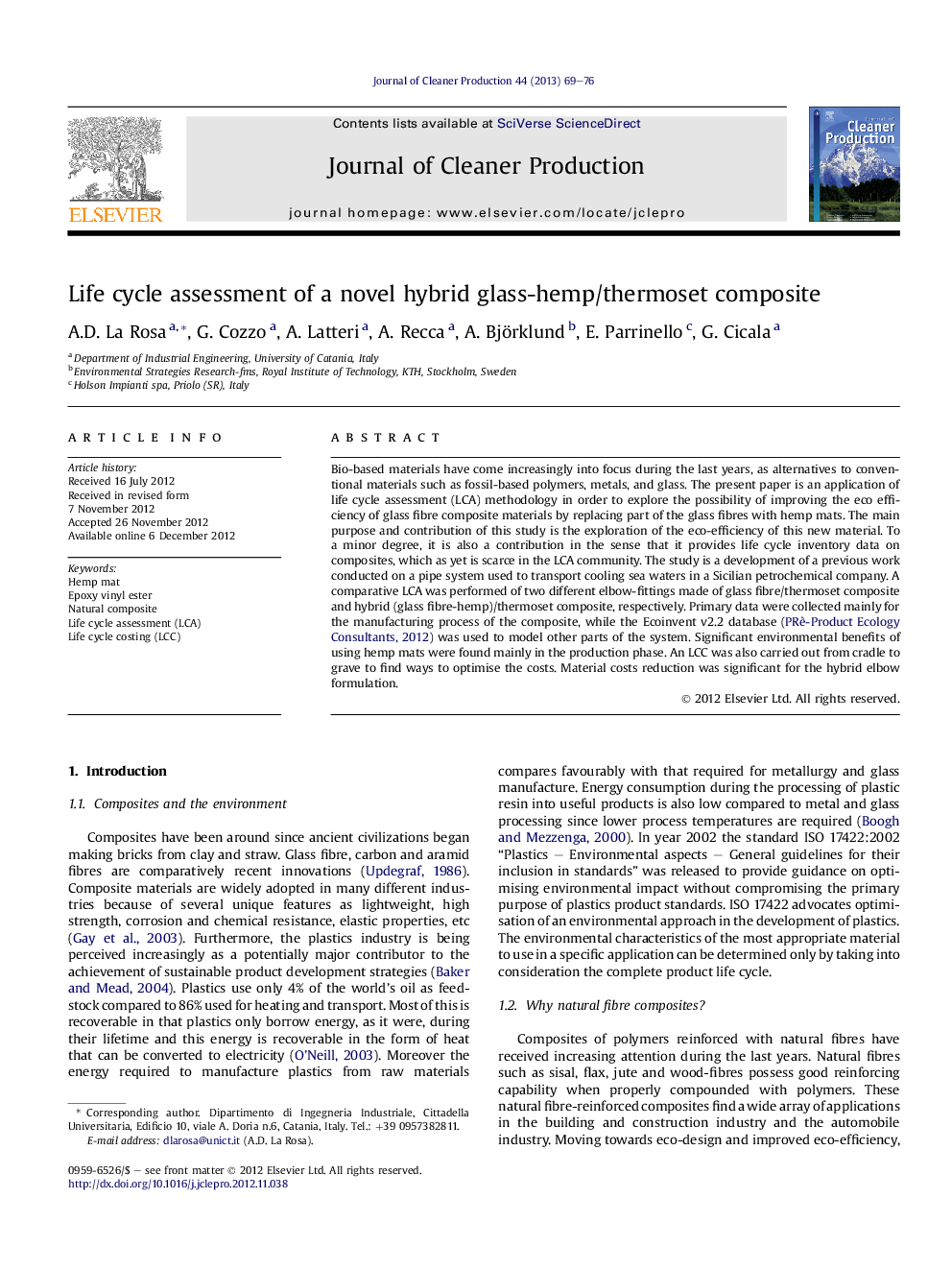| Article ID | Journal | Published Year | Pages | File Type |
|---|---|---|---|---|
| 1745562 | Journal of Cleaner Production | 2013 | 8 Pages |
Bio-based materials have come increasingly into focus during the last years, as alternatives to conventional materials such as fossil-based polymers, metals, and glass. The present paper is an application of life cycle assessment (LCA) methodology in order to explore the possibility of improving the eco efficiency of glass fibre composite materials by replacing part of the glass fibres with hemp mats. The main purpose and contribution of this study is the exploration of the eco-efficiency of this new material. To a minor degree, it is also a contribution in the sense that it provides life cycle inventory data on composites, which as yet is scarce in the LCA community. The study is a development of a previous work conducted on a pipe system used to transport cooling sea waters in a Sicilian petrochemical company. A comparative LCA was performed of two different elbow-fittings made of glass fibre/thermoset composite and hybrid (glass fibre-hemp)/thermoset composite, respectively. Primary data were collected mainly for the manufacturing process of the composite, while the Ecoinvent v2.2 database (PRè-Product Ecology Consultants, 2012) was used to model other parts of the system. Significant environmental benefits of using hemp mats were found mainly in the production phase. An LCC was also carried out from cradle to grave to find ways to optimise the costs. Material costs reduction was significant for the hybrid elbow formulation.
